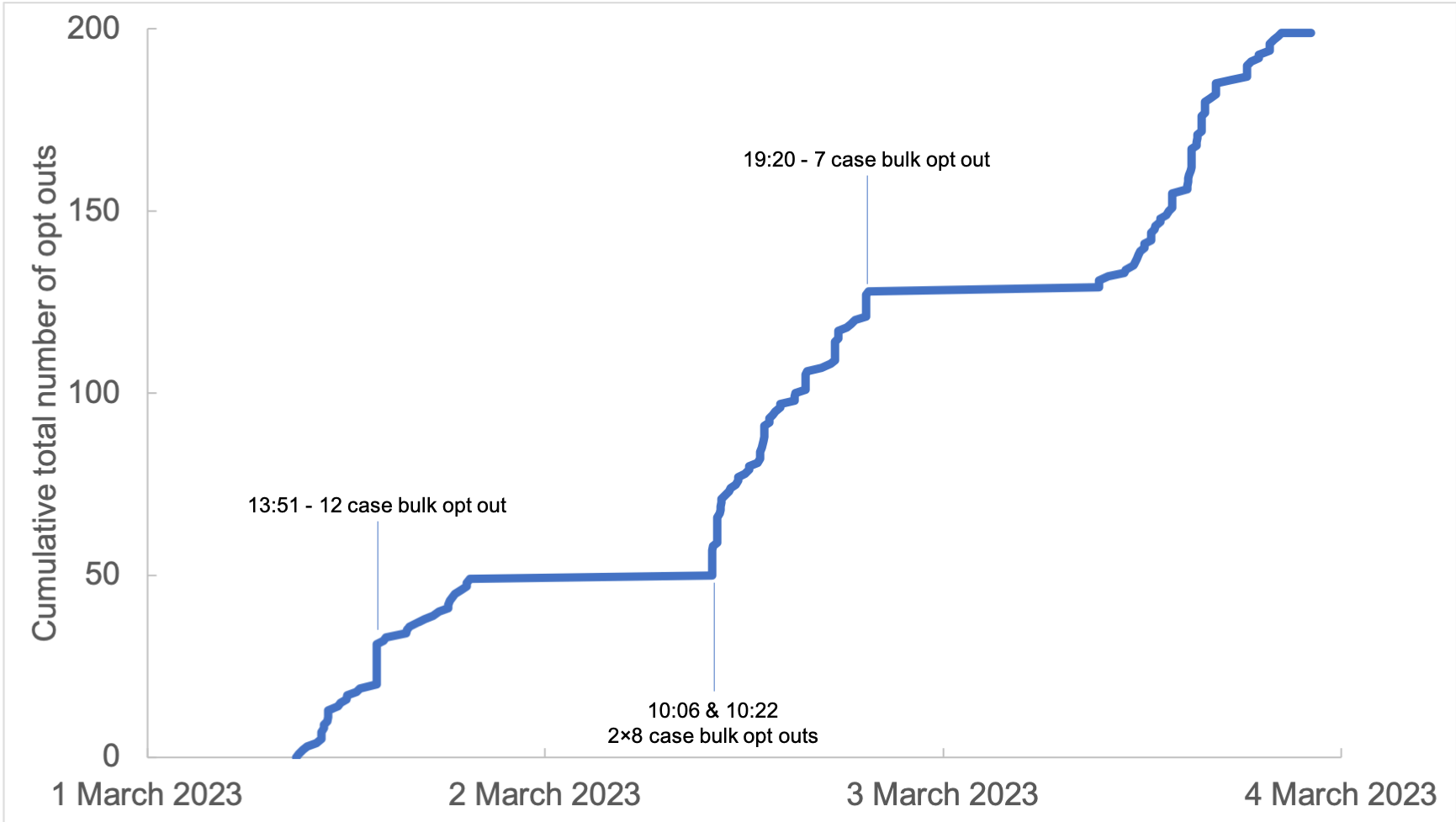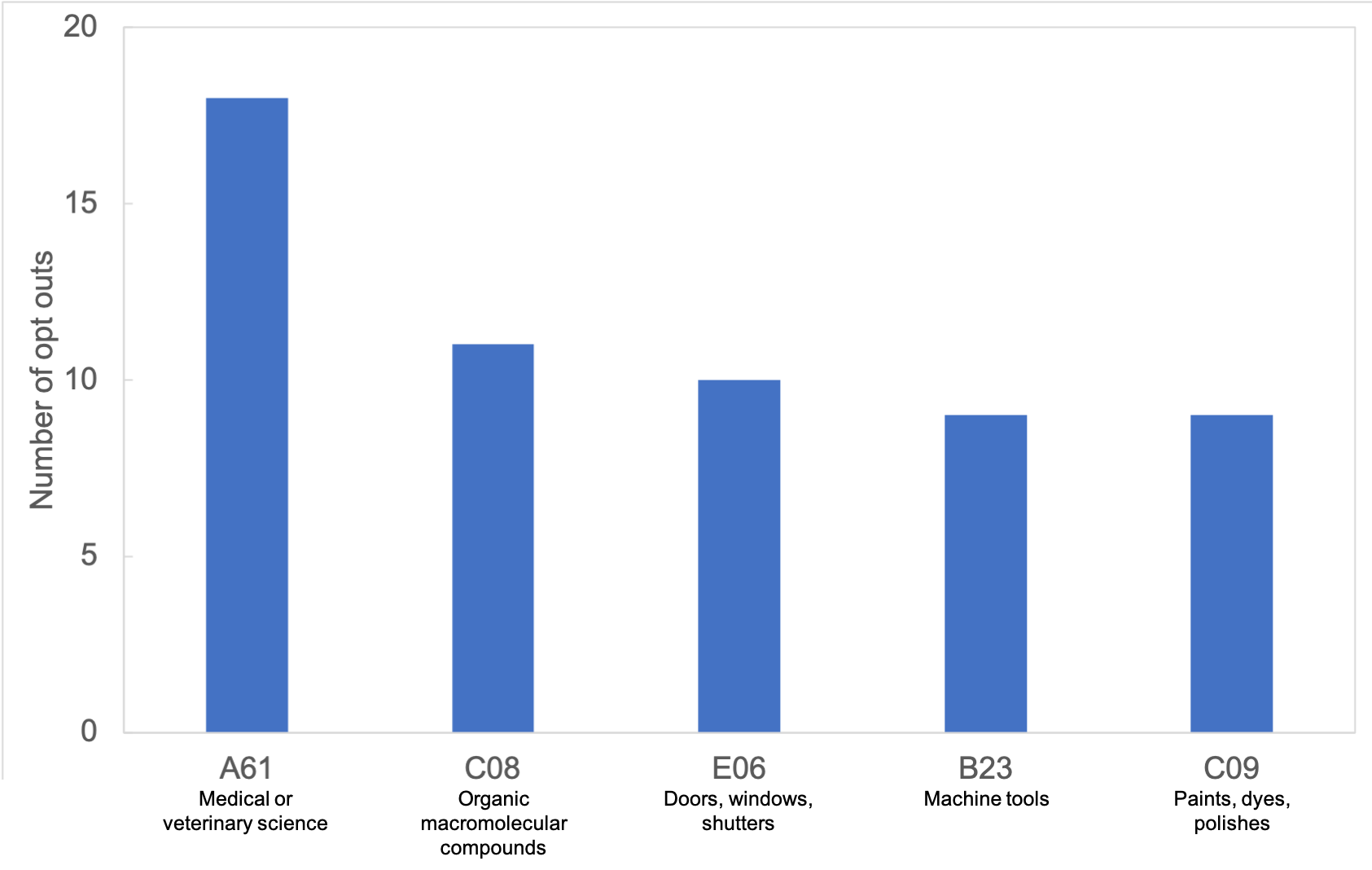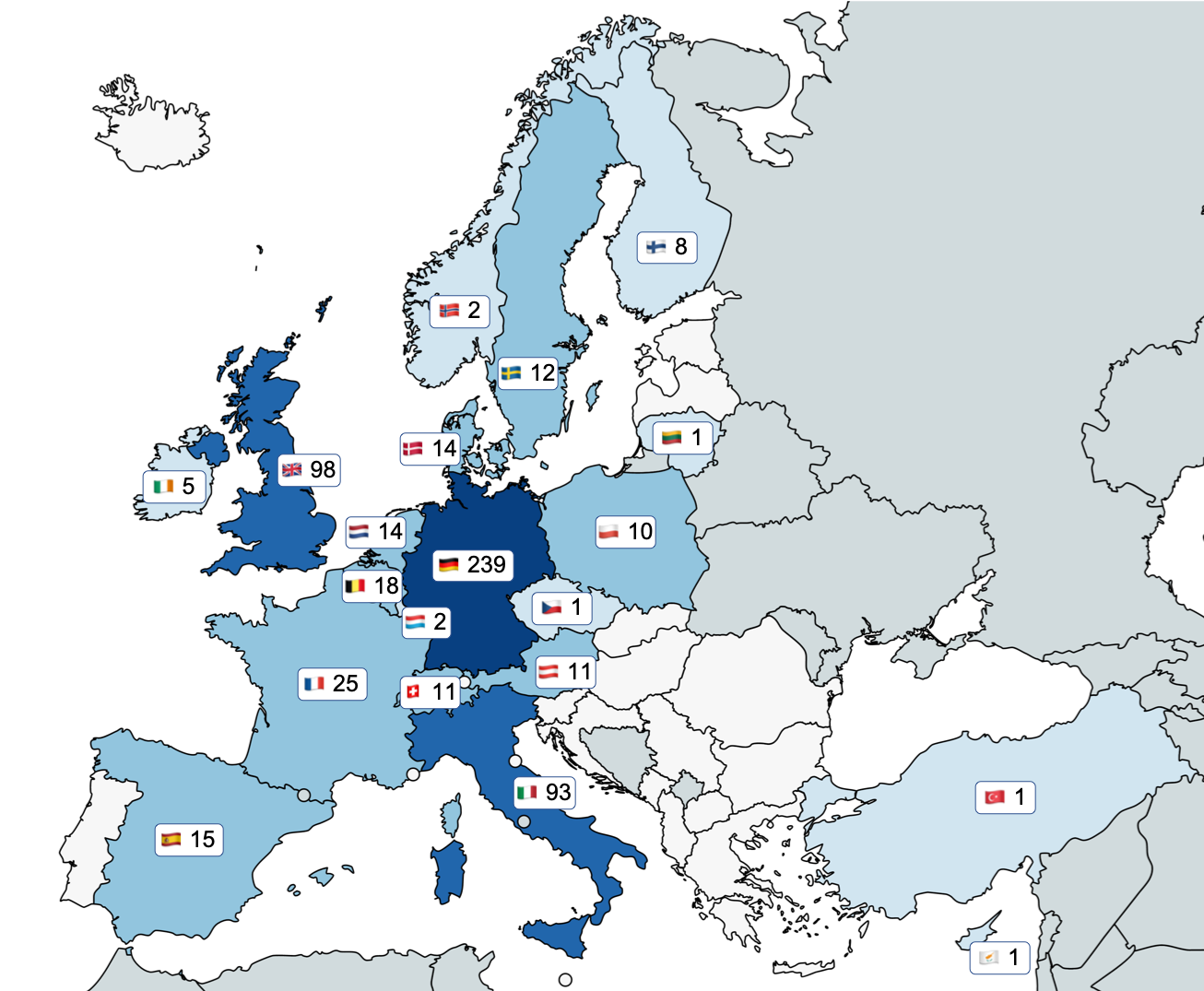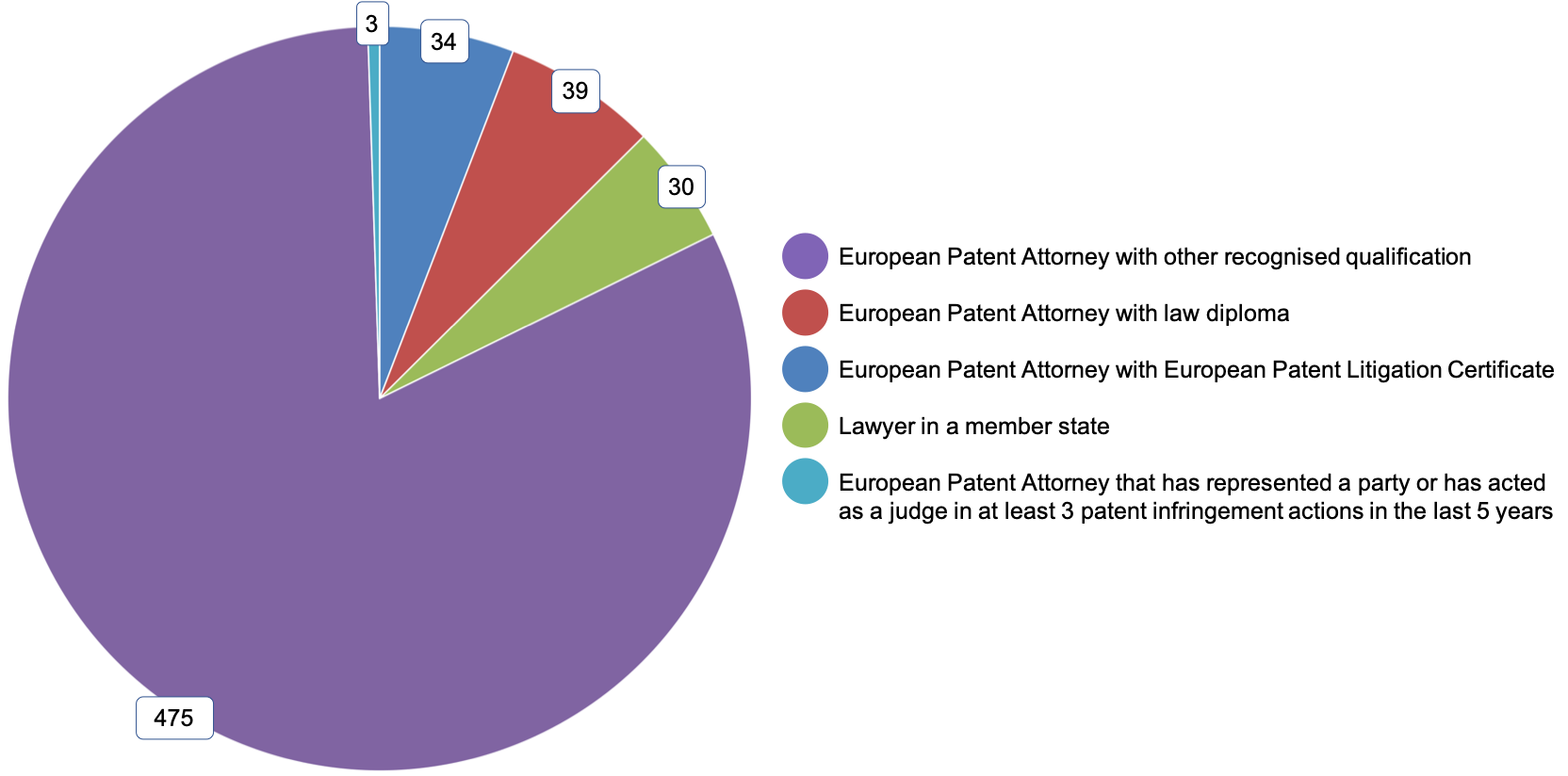At 09:00 CET on 1 March 2023, the three month sunrise period for the Unified Patent Court began. Whilst it is still early days, insights can already be gleaned from opt out requests and UPC representative applications that have already been filed on the Case Management System.
199 patents and applications opted out
150patents |
49applications |
110different first-named |
41different UPC |
A surprisingly high 25% of opt outs so far are in relation to pending European patent applications. Only 7% of UPC representatives have filed an opt out.
The mean number of patents and applications opted out per first-named applicant is 1.8 and the mode is 1. Applicants with smaller portfolios and less complex ownership structures will of course find it more straightforwards to file their opt outs in these opening days of the UPC sunrise.
Opt out requests over the first 3 days

The first opt out, with respect to EP1388578B1, was filed at 09:08 CET – remarkably soon after the Case Management System went live.
Top 5 primary International Patent Classifications of opted out patents and applications

The opting out of potentially high-value medical device patents and applications is to be expected. This small data set also shows a relatively large number of opted out patents and applications classified under doors, windows and shutters. This subject matter may drop down the rankings as anticipated “massive” bulk opt outs are filed.
581 people registered as a UPC representative
Country in address of representative

European patent attorneys can, for up to one year from entry into force of the UPC, make use of recognition by the UPC of specific qualifications to request entry onto the list of UPC representatives, without requiring the attorney to have obtained the European Patent Litigation Certificate or a law diploma. The recognised qualifications obtainable in Germany, the UK and Italy in particular seem to have enabled a relatively high number of attorneys from those countries to register.
Indicated entitlement to be a UPC representative

European Patent Attorneys currently form the majority of the list of UPC representatives as they will be more likely than lawyers to file opt outs on behalf of their clients during this sunrise period.
Data based on a snapshot from the Unified Patent Court Case Management System taken at 23:09 CET on 3 March 2023. Representatives currently appearing on the list of UPC representatives are pending check by the Registry of the Court. Where two entries with the same representative name were present on the list with different entitlement reasons, the entry with the entitlement based on the European Patent Litigation Certificate was removed from this analysis.
________________________
To make sure you do not miss out on regular updates from the Kluwer Patent Blog, please subscribe here.



It is not quite true that 581 people were “registered” as representatives before the UPC. The vast majority of applications are still listed as “Pending Examination”. As of today, the total number of individuals whose status is listed as “Registered” is only about 130.
Of interest, there is clear evidence that the UPC’s Registry is processing applications in reverse order, namely on a “last come first serve” basis. This hardly seems the most sensible way of doing things, and certainly not the fairest.
It seems that the UPC registry is working as it should not do.
What will it be when opt-outs will have to be registered?
In order to trap proprietors it will be as slow as possible as opt-out is only effective from the registration and has been made unnecessarily complicated with the new version of R 5(1,b) UPCA